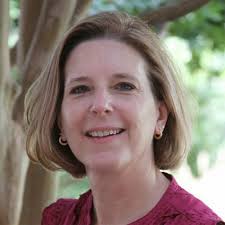Open Source Initiative (OSI)
See the following -
OSEHRA 2017 Leadership Award Recipients Announced
 The Open Source Electronic Health Record Alliance (OSEHRA) is pleased to announce this year’s OSEHRA Leadership Award winners. Numerous individuals were nominated this year and three were chosen through a vote by the OSEHRA community based on their outstanding achievements in health information technology and innovative health care. They were honored in a special ceremony during the 6th Annual OSEHRA Open Source Summit June 13-15, 2017 in Bethesda, MD...
The Open Source Electronic Health Record Alliance (OSEHRA) is pleased to announce this year’s OSEHRA Leadership Award winners. Numerous individuals were nominated this year and three were chosen through a vote by the OSEHRA community based on their outstanding achievements in health information technology and innovative health care. They were honored in a special ceremony during the 6th Annual OSEHRA Open Source Summit June 13-15, 2017 in Bethesda, MD...
- Login to post comments
OSEHRA 2018 Open Source Summit Dates Announced
 The Open Source Electronic Health Record Alliance (OSEHRA) is pleased to announce that it will host its 7th Annual Open Source Summit: The Open Road for Government Innovation from Wednesday, July 18 through Friday, July 20, 2018 at the Bethesda North Marriott Hotel and Conference Center. This year’s three-day Summit will highlight open source initiatives across Federal and State agencies, and the increasing level of public-private partnership in major programs. Read More »
The Open Source Electronic Health Record Alliance (OSEHRA) is pleased to announce that it will host its 7th Annual Open Source Summit: The Open Road for Government Innovation from Wednesday, July 18 through Friday, July 20, 2018 at the Bethesda North Marriott Hotel and Conference Center. This year’s three-day Summit will highlight open source initiatives across Federal and State agencies, and the increasing level of public-private partnership in major programs. Read More »
- Login to post comments
OSEHRA 2018: Calling all Abstracts for the OSEHRA Summit
 Plans for our 7th Annual Summit, The Open Road for Government Innovation, are well underway! This year's event will be held from July 18 - 20, 2018 and the Program Committee is looking forward to receiving an abundance of abstracts from the community. All are invited to participate and submit their proposals for presentation, poster, and/or roundtable discussion. All submissions are due no later than Friday, April 13, 2018.
Plans for our 7th Annual Summit, The Open Road for Government Innovation, are well underway! This year's event will be held from July 18 - 20, 2018 and the Program Committee is looking forward to receiving an abundance of abstracts from the community. All are invited to participate and submit their proposals for presentation, poster, and/or roundtable discussion. All submissions are due no later than Friday, April 13, 2018.
- Login to post comments
OSI Announces New Initiatives and Seeks Your Input
OSI is changing, and you can help! I spoke at FOSDEM in Brussels on Saturday on behalf of the Open Source Initiative (OSI), where I serve as a director. My noon keynote covered a little of the rationale behind OSI and a quick synopsis of its last decade from my own perspective and then announcements on OSI's behalf about the work we’re doing to make OSI strong and relevant for a new decade.
- Login to post comments
OSI Approves Cryptographic Autonomy License and CERN Open Hardware Licenses
 As the steward of the Open Source Defintion, the Open Source Initiative has been designating licenses as "open source" for over 20 years. These licenses are the foundation of the open source software ecosystem, ensuring that everyone can use, improve, and share software. When a license is approved, it is because the OSI believes that the license fosters collaboration and sharing for the benefit of everyone who participates in the ecosystem. The world has changed over the past 20 years, with software now used in new and even unimaginable ways. The OSI has seen that the familiar open source licenses are not always well-suited for these new situations. But license stewards have stepped up, submitting several new licenses for more expansive uses. The OSI was challenged to evaluate whether these new concepts in licensing would continue to advance sharing and collaboration and merit being referred to as "open source" licenses, ultimately approving some new special purpose licenses.
As the steward of the Open Source Defintion, the Open Source Initiative has been designating licenses as "open source" for over 20 years. These licenses are the foundation of the open source software ecosystem, ensuring that everyone can use, improve, and share software. When a license is approved, it is because the OSI believes that the license fosters collaboration and sharing for the benefit of everyone who participates in the ecosystem. The world has changed over the past 20 years, with software now used in new and even unimaginable ways. The OSI has seen that the familiar open source licenses are not always well-suited for these new situations. But license stewards have stepped up, submitting several new licenses for more expansive uses. The OSI was challenged to evaluate whether these new concepts in licensing would continue to advance sharing and collaboration and merit being referred to as "open source" licenses, ultimately approving some new special purpose licenses.
- Login to post comments
OSI Open Reformation Begins in Earnest
The Open Source Initiative (OSI) is creating a process for wider participation through working groups and new affiliate programmes which will influence its thinking on its future mission. The programme was unveiled at last week's Open Source Business Conference in San Francisco by OSI board member Simon Phipps. The plans are the result of the OSI's planning for reformation announced in March.
- Login to post comments
popHealth Community and OSEHRA Release Major Update to Open Source Clinical Quality Measure Database and Reporting Engine
 This is the second major release since popHealth version 3.0 was transitioned to the OSEHRA popHealth Community in 2014. It is the culmination of collaborative efforts by members of the OSEHRA popHealth Steering Work Group and the Developer Open Source Project Group. OSEHRA Organizational Member Zato Health co-funded the ONC certification and provided key technical support throughout the process, coordinating closely with the Connecticut Department of Social Services/ Medicaid. Group members from Northwestern University, eHealthConnecticut, Alabama State Medicaid, and Qualifacts all made significant code, expertise, and infrastructure contributions...
This is the second major release since popHealth version 3.0 was transitioned to the OSEHRA popHealth Community in 2014. It is the culmination of collaborative efforts by members of the OSEHRA popHealth Steering Work Group and the Developer Open Source Project Group. OSEHRA Organizational Member Zato Health co-funded the ONC certification and provided key technical support throughout the process, coordinating closely with the Connecticut Department of Social Services/ Medicaid. Group members from Northwestern University, eHealthConnecticut, Alabama State Medicaid, and Qualifacts all made significant code, expertise, and infrastructure contributions...
- Login to post comments
The Cyber Resilience Act Introduces Uncertainty And Risk Leaving Open Source Projects
 What might happen if the uncertainty persists around who is held responsible under the Cyber Resilience Act (CRA)? The global Open Source community is averse to legal risks and generally lacks access to counsel, so it’s very possible offers of source code will simply be withdrawn rather than seeking to resolve the uncertainty. The CRA rightly addresses the need for commercial suppliers to protect their customers from exploits and cyber attacks. But legislators have exposed the open development of software itself to the regulations rather than just the for-profit use of Open Source artifacts in the marketplace. They are incorrectly assuming that Dirk Riehle’s terminology calling single-company projects “commercial Open Source” means it’s possible to use the “commerciality” of an application to distinguish single-company activity from community projects, and by using the concepts of proprietary software to then define boundaries.
What might happen if the uncertainty persists around who is held responsible under the Cyber Resilience Act (CRA)? The global Open Source community is averse to legal risks and generally lacks access to counsel, so it’s very possible offers of source code will simply be withdrawn rather than seeking to resolve the uncertainty. The CRA rightly addresses the need for commercial suppliers to protect their customers from exploits and cyber attacks. But legislators have exposed the open development of software itself to the regulations rather than just the for-profit use of Open Source artifacts in the marketplace. They are incorrectly assuming that Dirk Riehle’s terminology calling single-company projects “commercial Open Source” means it’s possible to use the “commerciality” of an application to distinguish single-company activity from community projects, and by using the concepts of proprietary software to then define boundaries.
- Login to post comments
The Emergence of Artificial Intelligence And Why Open Source Matters
 Sharing knowledge and sharing code has always been a key driver for innovation in Artificial Intelligence. Researchers have gathered together since AI was established as a field to develop and advance novel techniques, from Natural Language Processing to Artificial Neural Networks, from Machine Learning to Deep Learning. The Open Source community has played a key role in advancing AI and bringing it to solve real-world problems. Libraries and frameworks like TensorFlow, PyTorch, Keras, and Scikit-learn, for example, have allowed researchers and data scientists to study and make use of AI.
Sharing knowledge and sharing code has always been a key driver for innovation in Artificial Intelligence. Researchers have gathered together since AI was established as a field to develop and advance novel techniques, from Natural Language Processing to Artificial Neural Networks, from Machine Learning to Deep Learning. The Open Source community has played a key role in advancing AI and bringing it to solve real-world problems. Libraries and frameworks like TensorFlow, PyTorch, Keras, and Scikit-learn, for example, have allowed researchers and data scientists to study and make use of AI.
- Login to post comments
To Trust Artificial Intelligence, It Must Be Open And Transparent. Period.
 Machine learning has been around for a long time. But in late 2022, recent advancements in deep learning and large language models started to change the game and come into the public eye. And people started thinking, “We love Open Source software, so, let’s have Open Source AI, too.” But what is Open Source AI? And the answer is: we don’t know yet. Machine learning models are not software. Software is written by humans, like me. Machine learning models are trained; they learn on their own automatically, based on the input data provided by humans. When programmers want to fix a computer program, they know what they need: the source code. But if you want to fix a model, you need a lot more: software to train it, data to train it, a plan for training it, and so forth. It is much more complex. And reproducing it exactly ranges from difficult to nearly impossible.
Machine learning has been around for a long time. But in late 2022, recent advancements in deep learning and large language models started to change the game and come into the public eye. And people started thinking, “We love Open Source software, so, let’s have Open Source AI, too.” But what is Open Source AI? And the answer is: we don’t know yet. Machine learning models are not software. Software is written by humans, like me. Machine learning models are trained; they learn on their own automatically, based on the input data provided by humans. When programmers want to fix a computer program, they know what they need: the source code. But if you want to fix a model, you need a lot more: software to train it, data to train it, a plan for training it, and so forth. It is much more complex. And reproducing it exactly ranges from difficult to nearly impossible.
- Login to post comments
Top 10 Open Source Legal Developments in 2015
 In 2015 there were a variety of legal issues of importance to the FOSS (free and open source) community. Continuing the tradition of looking back over the top ten legal developments in FOSS, my selection of the top ten issues for 2015 is as follows:
In 2015 there were a variety of legal issues of importance to the FOSS (free and open source) community. Continuing the tradition of looking back over the top ten legal developments in FOSS, my selection of the top ten issues for 2015 is as follows:
- Settlement of Versata cases interpreting General Public License version 2 (GPLv2)
- First decision interpreting General Public License version 3 (GPLv3)
- Linux programmer sues VMware for violation of GPLv2 for Linux
- Community GPL compliance
- European Commission antitrust investigation of Google and its Android operating System (Android OS)...
- Login to post comments
Upstream Conference to Feature Open Source Maintainers
 Imagine the chaos that would occur if all open source software vanished with the snap of a finger. Picture the devices that would turn to bricks in our hands, the infrastructure that would fail, and the machinery that would fall silent. The truth is we probably don't stop to think about all the open source libraries, frameworks, and components we depend on-until something goes wrong. The extraordinary impact of open source is difficult to measure or quantify...Open source is a testament to human ingenuity, and it's not often that we take the time to celebrate what we-the creators and users of open source-have made together. We think it's time we did. That's why we're announcing a new type of open source event called Upstream. It's a one-day celebration of open source for the developers who use it and the maintainers that create it. We'd like you to join us on June 7 for this entirely virtual and free event where we'll focus on the creators behind essential open source packages and the developers who build amazing things with them.
Imagine the chaos that would occur if all open source software vanished with the snap of a finger. Picture the devices that would turn to bricks in our hands, the infrastructure that would fail, and the machinery that would fall silent. The truth is we probably don't stop to think about all the open source libraries, frameworks, and components we depend on-until something goes wrong. The extraordinary impact of open source is difficult to measure or quantify...Open source is a testament to human ingenuity, and it's not often that we take the time to celebrate what we-the creators and users of open source-have made together. We think it's time we did. That's why we're announcing a new type of open source event called Upstream. It's a one-day celebration of open source for the developers who use it and the maintainers that create it. We'd like you to join us on June 7 for this entirely virtual and free event where we'll focus on the creators behind essential open source packages and the developers who build amazing things with them.
- Login to post comments
OSEHRA 2018 Open Source Summit
The Open Source Electronic Health Record Alliance (OSEHRA) will host its 7th Annual Open Source Summit: The Open Road for Government Innovation from Wednesday, July 18 through Friday, July 20, 2018 at the Bethesda North Marriott Hotel and Conference Center. This year’s three-day Summit will highlight open source initiatives across Federal and State agencies, and the increasing level of public-private partnership in major programs. It will also explore emerging hybrid proprietary/open source efforts such as the U.S. Department of Veterans Affairs' Electronic Health Record Modernization (EHRM) and how to optimize open source utilization and community involvement.
- Login to post comments
2nd Deep Dive Event: Defining Open Source Artificial Intelligence
Open Source Initiative (OSI), the non-profit corporation that educates about and advocates for the importance of non-proprietary software, is hosting its 2nd Deep Dive: AI event, this one focused on Defining Open Source AI. The goal is to work toward establishing a clear and defendable definition of “Open Source AI.” OSI is bringing together global experts to establish a shared set of principles that can recreate a permissionless, pragmatic and simplified collaboration for AI practitioners, similar to what the Open Source Definition has done. OSI is the steward of the Open Source Definition, which serves as the foundation of the modern software ecosystem, outlining the distribution terms of Open Source software. OSI also maintains a list of OSI Approved Licenses that have become a nexus of trust around which developers, users, corporations and governments can organize Open Source cooperation.
 “It’s time to define what ‘open’ means in AI before it is defined by accident,” said Stefano Maffulli, executive director of OSI. “This milestone project is essential right now. Policymakers, re-users and modifiers are confused, and developers aren’t clear on data sharing and transparency. A permission structure is needed to help fight open washing.”
“It’s time to define what ‘open’ means in AI before it is defined by accident,” said Stefano Maffulli, executive director of OSI. “This milestone project is essential right now. Policymakers, re-users and modifiers are confused, and developers aren’t clear on data sharing and transparency. A permission structure is needed to help fight open washing.”
- Login to post comments
- previous page
- 1
- 2
- 3